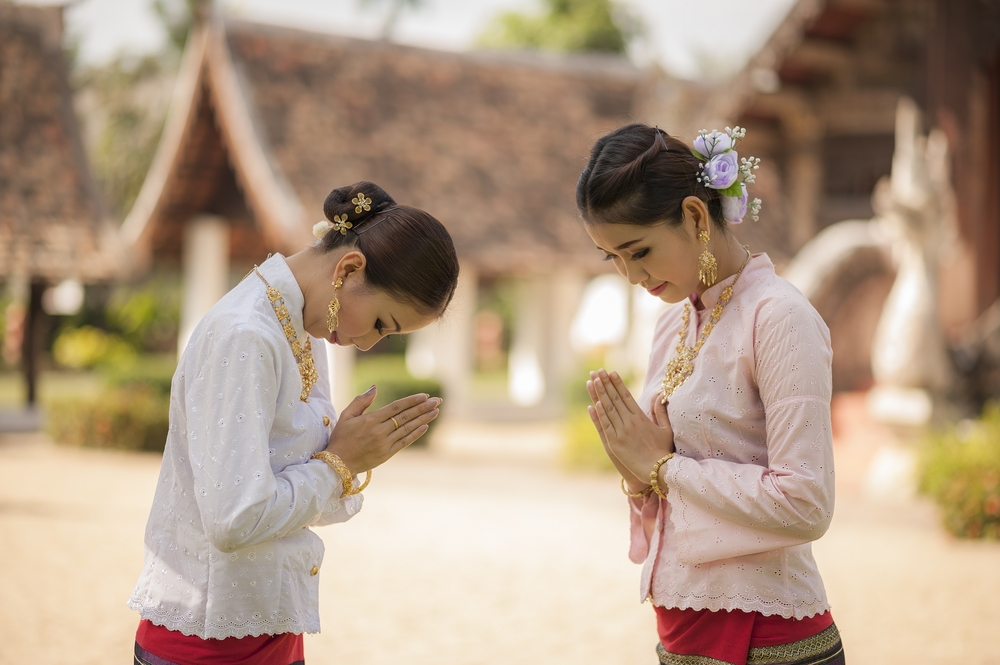
Across the globe today adaptations to COVID-19 have slowly but surely crept up. We are steering away from behaviors that up until now were a normal way of life.
Part of that behavior is how we greet each other.
People have stopped shaking hands, a sign of trust, but now the most common way of transmitting the virus. Other forms of greeting have emerged in the place of a handshake such as the so-called ‘Wuhan shake’, a kind of foot-shake, tapping shoes together, or the fist-bump gesture, the coming close but not touching hands.
And then, there’s the Wai…
The Wai, the most common greeting used by natives of Thailand, consists of bringing one’s palms together while bowing or dipping one’s head. Sometimes the Wai is performed so that it accompanies a verbal greeting. Other times it is a nonverbal act with no verbal accompaniment.
Growing up in Thailand I was introduced to the Wai at a very young age. It was part of my upbringing. A beautiful tradition, an expression that represents the Thai culture, the Wai is used as part of greetings in Thailand, for hellos and goodbyes, to show respect, gratitude, acknowledgement, and also during sincere apology.
In appearance, the Thai Wai is most similar to the traditional Indian prayer pose, Pranamasana. The Pranamasana is delivered as a greeting with the phrase “Namaste” which, like the Wai, involves placing the hands together with the fingers upright over the chest, head slightly bowed forward, thus placing the gesture directly over the heart, or chakra.
Thai people don’t always shake hands by default, unless they’re doing so to make Westerners feel more comfortable. Instead, they offer a friendly Wai for such things as greetings, farewells, accompanying apologies, expressing thanks, and returning or acknowledging a Wai with a Wai.
To a casual observer, the Wai may seem much like a western handshake, a form of greeting mostly meant to break the ice.
In my opinion the Wai is by far the most elegant form of greeting, a great way to connect during the emerging coronavirus culture. It is great to see more and more people adopt the Wai as the way they greet and grieve, the way they say hello without touching each other, yet showing respect and connecting — gracefully, spiritually, and authentically.
The world has changed. And we need to adapt to this change — mindfully, gracefully, and with heart.
To Wai or not to Wai then is the question…
© Rani St. Pucchi, 2020
Rani St. Pucchi is an award-winning Couture Fashion Designer, a Style & Image Consultant, and a Relationship Expert. She is a Bestselling Author, Speaker, a certified Life Coach and Success Trainer. Her highly acclaimed TEDx talk: Is Your Body Image Holding You Back has won worldwide acclaim and is definitely worth watching. Rani’s #1 International Bestselling Books, Your Body, Your Style; The SoulMate Checklist; Your Bridal Style; and Gold In The Cracks are now available on Amazon and at Barnes & Nobles.
For more information on Rani visit www.ranistpucchi.com

